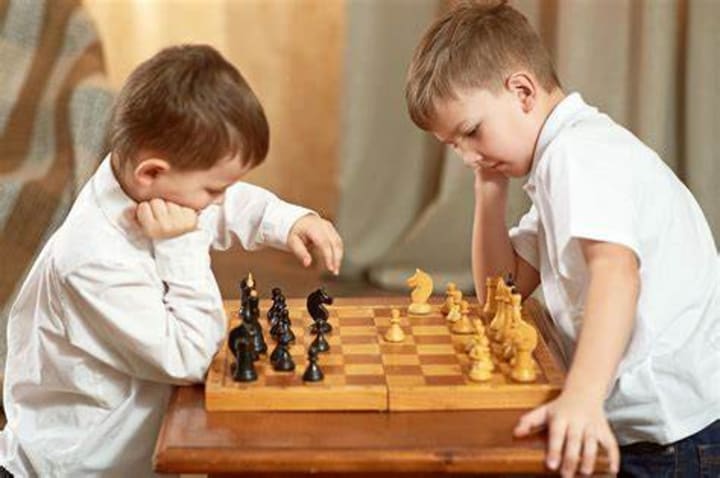"Nurturing Young Minds:
Cultivating Critical Thinkers from an Early Age"

Introduction:
In a rapidly evolving world, the ability to think critically is an invaluable skill that empowers individuals to navigate complex challenges and make informed decisions. While critical thinking is often associated with adults, fostering this skill from an early age sets children on a path to becoming independent, creative, and confident problem-solvers. In this article, we will explore effective strategies to nurture critical thinking in children, enabling them to develop sharp minds and embrace the joys of intellectual curiosity.
Encouraging Curiosity and Questioning: Curiosity is the foundation of critical thinking. Encourage children to ask questions about the world around them, fostering their natural sense of wonder. Instead of offering immediate answers, guide them to explore and seek solutions independently. Support their curiosity by providing age-appropriate resources such as books, documentaries, and hands-on experiences that encourage exploration and discovery. By nurturing their inquisitive nature, children will develop the habit of questioning, analyzing, and seeking knowledge.

Emphasizing Problem-Solving Skills: Problem-solving is at the core of critical thinking. Encourage children to tackle challenges by breaking them down into smaller, manageable parts. Present them with puzzles, riddles, or open-ended tasks that require creative solutions. Foster a supportive environment where mistakes are viewed as learning opportunities, and children are encouraged to try different approaches. Teach them problem-solving strategies such as brainstorming, considering alternatives, and evaluating consequences. By nurturing their problem-solving skills, children become adept at analyzing situations, thinking creatively, and making informed decisions.
Check this site: scribesanointing.com
Promoting Independent Thinking: Independent thinking is a crucial aspect of critical thinking. Encourage children to form their own opinions and perspectives, even if they differ from others. Provide opportunities for open discussions where they can express their thoughts and listen to different viewpoints. Teach them to consider evidence, evaluate arguments, and support their claims with logical reasoning. Foster a culture of respect for diverse opinions, allowing children to develop the confidence to voice their ideas and engage in constructive debates. By promoting independent thinking, children learn to think critically, analyze information, and make well-rounded judgments.
Developing Analytical Skills: Analytical thinking enables children to examine information objectively and draw meaningful conclusions. Introduce age-appropriate activities that enhance their analytical skills, such as puzzles, scientific experiments, or pattern recognition games. Encourage them to observe details, identify patterns, and make connections between different pieces of information. Teach them to gather evidence, evaluate its credibility, and draw logical conclusions. By developing analytical skills, children become adept at processing information, identifying biases, and making informed judgments.
Encouraging Reflection and Metacognition: Reflection and metacognition involve thinking about one’s own thinking processes. Encourage children to reflect on their experiences, actions, and problem-solving approaches. Ask open-ended questions that promote self-awareness and introspection. Help them identify strengths and areas for improvement in their thinking. Teach them to monitor their own learning, set goals, and adjust strategies accordingly. By fostering reflection and metacognition, children develop a deeper understanding of their thinking processes, enabling them to refine their critical thinking skills.
Check out my book “ Choosing the Right Preschool” (Makes All of the Difference) scribesanointing.com

Conclusion: Cultivating critical thinkers from an early age empowers children with invaluable skills that will serve them throughout their lives. By encouraging curiosity, emphasizing problem-solving, promoting independent thinking, developing analytical skills, and encouraging reflection, parents and educators can nurture young minds to become confident and agile critical thinkers. As we guide children on this path, we prepare them to navigate the complexities of the future with intellectual curiosity, analytical prowess, and the ability to make sound, informed decisions.





Comments
There are no comments for this story
Be the first to respond and start the conversation.